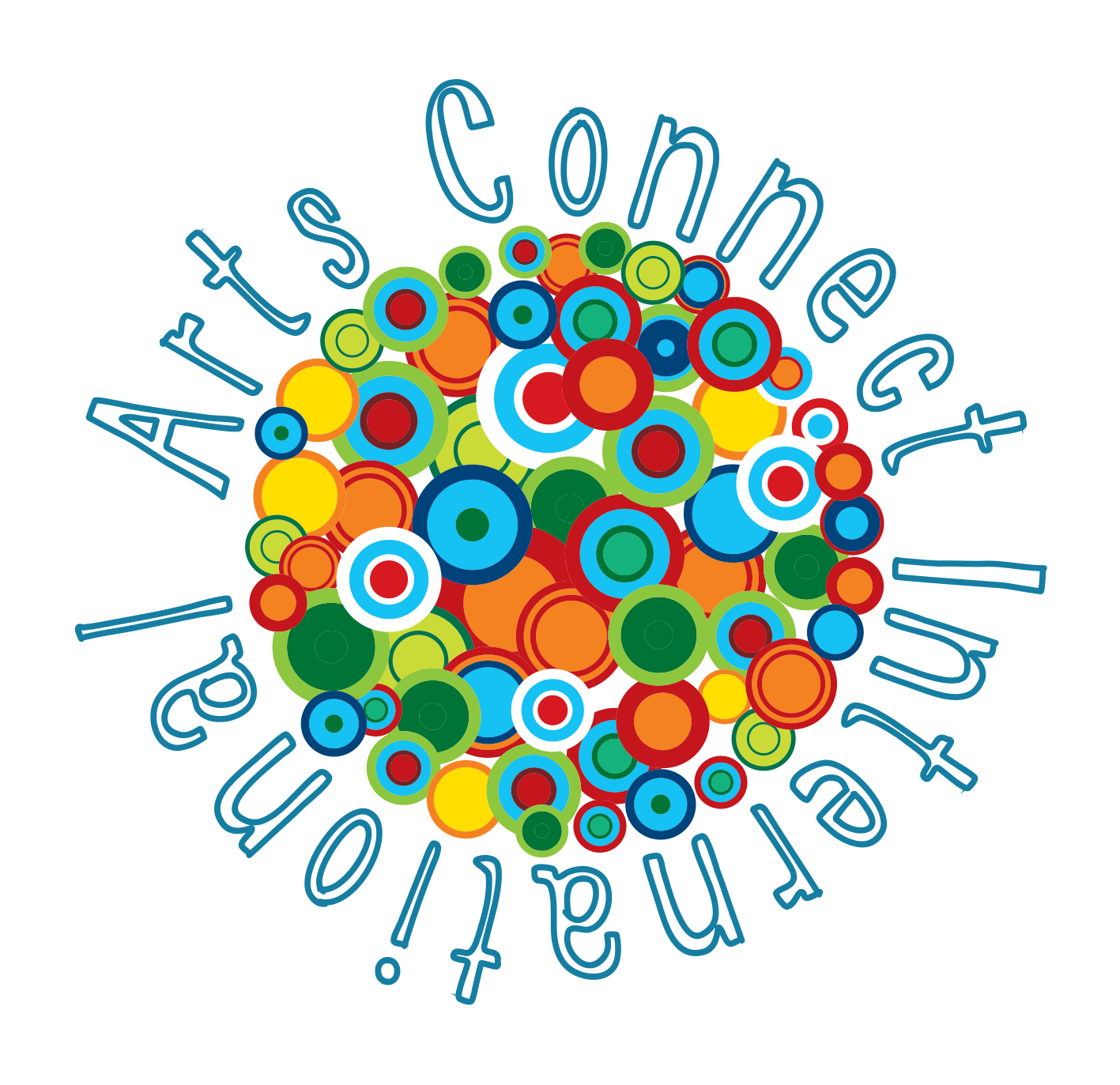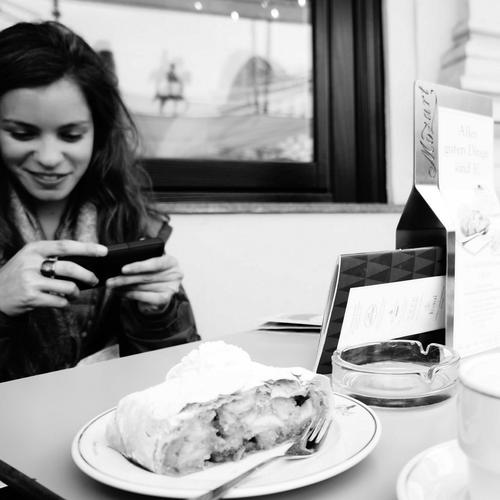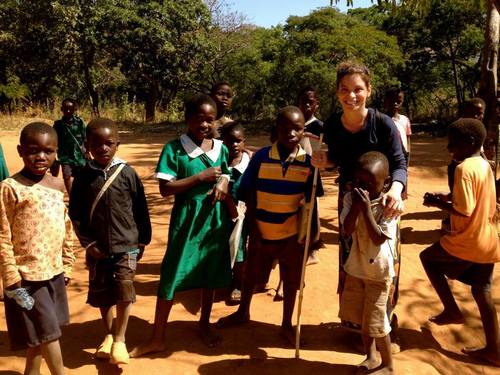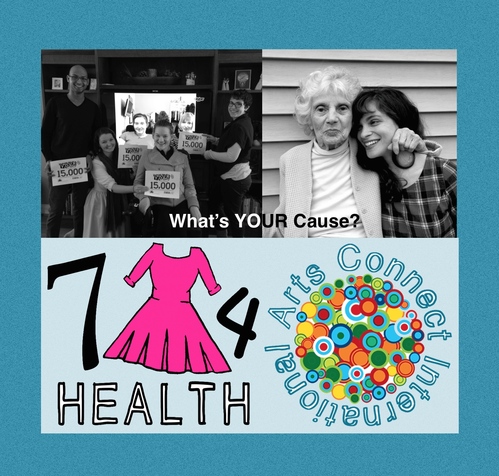About the Author: Sarah Gelbard is a graduate of the University of Rochester. She has worked in the Friedreich Ataxia Program at the Children’s Hospital of Philadelphia, and within Philadelphia’s vibrant non-profit sector. Bookworm and insistent venturer, her curiosities lie at the intersections of public health, education, social justice, and the arts.
Title: Eggs & Bacon
“Differences are not intended to separate, to alienate. We are different precisely in order to realize our need of one another.”
(Desmond Tutu)
“I am because we are.”
(Proverb)
Disability is dealt arbitrarily; it is not a welcome present. Nobody goes to the gift shop, and says, “Ankylosing spondylitis– that sounds lovely!” Or, “I’ll take a brachial plexus injury for my brother on his birthday, with the red wrapping paper, please, and a free sampling of multiple sclerosis for me.” While I did not choose cerebral palsy, I do consider myself lucky to be a part of the disabled community. Through it, I have forged valuable connections with a great many, and we are allowed singular insight into the broad spectrum of human empathy. We encounter those who judge harshly, cruelly, fast to reject apparent otherness, and those who reach out seamlessly, kindly, fast to recognize apparent humanness.
In 2013 I was introduced to a beautiful, brilliant village called Gowa, with the Malawi Immersion Seminar. It was a formative venture in exploration and learning. I got around with help from community members, leaders, and friends, tremendously generous in their lending of a hand here, an arm there, and safe passage over streams or rocky passes. I had a makeshift cane, too, named Indie (for Indiana Jones). A friend expressed that she was grateful for my presence there, that she knew of some who might see azungus (foreigners) as exceptionally wealthy and so blessedly unfettered. I was a walking (or limping, as the case may be) attestation to the notion that everyone everywhere struggles with something, or many things. This is part of living.
Disability can be encumbering, a struggle, but truly, it just is. It is not the sort of present that can be put aside with ugly holiday sweaters from your great aunt Winifred. It is always there, and I do not go about my days analyzing the ways in which it may make things more difficult. I simply go about my days. I was thrilled in Malawi to take on tasks that were challenging for my able-bodied peers. My participation was contingent upon willingness to confront a stubborn fondness for independence, to learn to accept help with thanks rather than apology, to embrace the surrounding philosophy– a very strong sense of community, a collective worthiness. An associated dictum, *kali kokha nkanyama, tili awiri ntiwanthu translates as follows: alone, you are like an animal, but with a companion you are human– possessed of uMunthu, or human kindness. I am because we are.
In 2012 I had worked briefly on a clean water filtration system in El Canton, Honduras, with the University of Rochester chapter of Global Water Brigades. We spent hours holding tight to the edges of slippery earth, wielding shovels and pick axes. I am certain that we gained more than we gave, with a welcome window into the culture of El Canton and new knowledge to share with classmates. A volunteer took me aside one evening to tell me that she thought I was brave– “If I were you,” she’d said, “I’d have been afraid.”
If my presence is a tiny reminder of likeness that transcends race, place, or material wealth, I can only be glad for it. My inclination towards adventure, though, my desire for discovery, for connection and understanding across all corners of the world is an elemental part of who I am, of my personhood, and disability does not diminish it. That doesn’t make me brave– it makes me curious and hopeful, eager to pursue what excites me, not in spite of what I can’t do, but with humble appreciation for what I can. I cannot catch a ball, win a marathon, or balance atop a tightrope, but I can make delectable eggs and bacon, recite excellent poetry, and astound you with fascinating trivia. Did you know, for example, that floccinaucinihilipilification is the longest word in the English language without the letter “e”?
I don’t mean to say that I have never been frustrated, that I have never felt isolated, that I have never wondered about what it might be like to go for a run; I have. Fortunately, though, I don’t want to be a firefighter, or an acrobat at the circus. (While I admire both, I am drawn to other conduits for service and art, conduits that don’t require nimble-footedness or confrontation with burning buildings.)
My point, here, is to suggest that we may imagine disability not as a deficit, but as another manifestation of diversity. If you are a masterfully crafty sculptor, or a whimsical, word-bending poet, and you like biomedical science but molecular formulas and mathematical equations are as transparent as a barrel of refried beans for you, you may not opt for a PhD in neurochemistry– but you will follow different pursuits of equal greatness. Everyone has certain strengths, everyone has certain struggles, and everyone must accept help sometimes. That should not be pitiable; it should be empowering.
We are diverse, and superlative in our diversity. Perhaps that diversity can, rather than isolate us, bring us together. If you give me a hand up this hill, I will make you eggs and bacon. If we can offer help as we are able and accept it as we need it, if we can celebrate what we may give to others and what we stand to receive– each of us, and the world, will be better for it. And of course, then, we can all just enjoy our eggs and bacon.
*Thank you to my friend Geoffrey Mlongoti for providing Chichewa language translation. You can connect with the innovative work that Geoffrey, Joseph Lanning, and friends are doing in Malawi on Facebook, with the Zisinthe Farm and Community Gardens.
Call to action:
Do you have important information around one of our seven causes: HIV/AIDS, Mental Health, Nutrition, Heart Disease, Maternal Child Health, Cancer, Disability, that you want to share with a wider audience? Do you or a loved one currently live and/or struggle with one of these causes? Do you work in research, advocacy, prevention, treatment or care? We want to hear from YOU! Write to us today: 7dresses@artsconnectinternational.org to become a featured blog writer. Another way to get involved is to wear the color of the day in solidarity. Take a picture of yourself in the color of the day and Tweet it @ArtsConnectInt, tag us on Instagram @ArtsConnectInt, or send it to us on
About 7 Dresses 4 Health (7D4H): 7D4H is a year-long arts and health education campaign lead by visual artist, Marian Brown, in conjunction with Arts Connect International. The objective of the campaign is to promote inclusive community practices through adDRESSing health artistically and collaboratively. To learn more about the genesis of the project, read Marian’s New Year Blog.
About today's look: All of the dresses for 7 Dresses 4 Health were designed and sewn by Kim's Fashion Design. Love the look? Visit Kim at 100 Huntington Ave, Boston MA 02116, call her at (617) 267-9299 or email her: info@kimsfashion.com. Mention 7 Dresses 4 Health for a special discount!
Campaign Update (2017): All 7 Dresses 4 Health blogs were migrated from a former site, so the sharing analytics are inconsistent from when they were first published. We apologize to our guest bloggers, and readers, for this inconvenience. That said, the campaign garnered an average of 5K hits per blog, over 500,000 readers throughout 2015! Additionally, the average number of shares per guest blog was over 150x on social media (through Facebook and Twitter). Thank you for making this incredible campaign possible - and for all that it was for so many. With gratitude, Marian & the ACI Team




